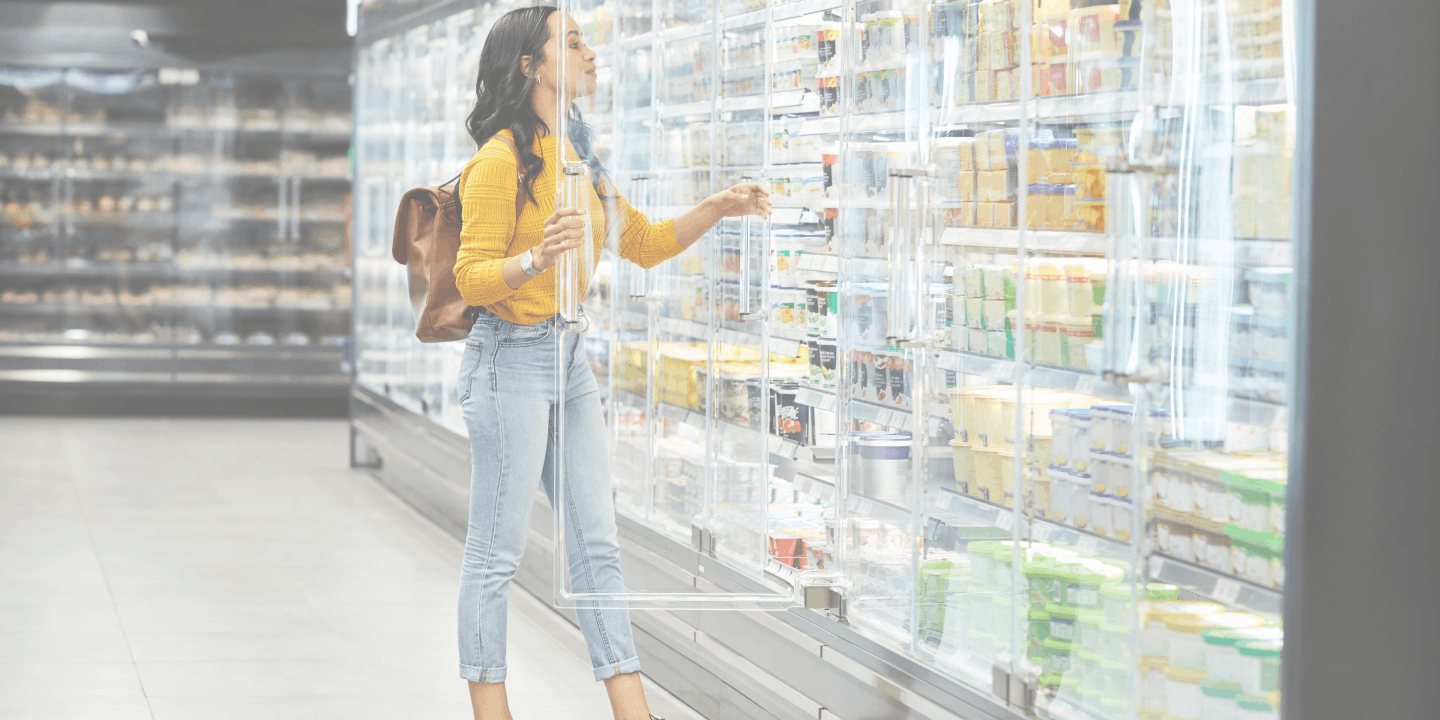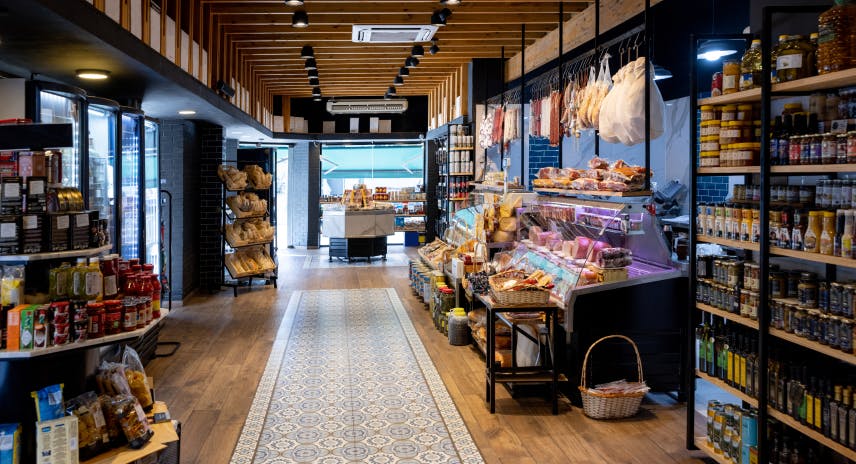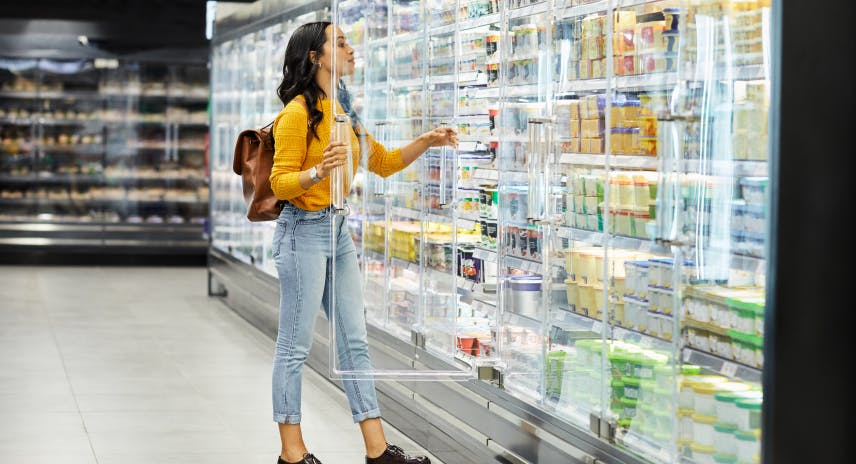
- Integrated Security Solutions
How Automated and Integrated Security Systems Fight Retail Staff Shortage
According to a recent report by the National Retail Federation (NRF) in the United States, retailers currently face a severe shortage of qualified staff: Many are struggling to fill open positions. This might have multiple reasons, such as increased competition from other industries. Retailers do best if they now start considering options other than investing in methods to “simply” stack up human resources.
And they do: At EuroShop 2023, the world's largest retail trade fair, industry experts have been exploring new ways to tackle the challenges that come with staff shortage. Along with AI rising across all industries, one promising solution gaining popularity rapidly is automated and integrated security systems. This is because they allow retailers to run hybrid or completely autonomous stores, enabling them to sell products in a 24/7 mode in both cases. Integrated security solutions are helping retailers combat staff shortages while increasing retail revenue spans simultaneously. That’s why they seem like the ultimate solution is here to stay.
But how can they help retailers streamline operations and provide better customer experiences?
In this article, we’ll explore how leveraging automated and integrated security systems are securing the future of retail. How can this technology address the ongoing staffing shortage while offering retailers new services? And what are the benefits of integrating security systems into retail operations?
Let’s jump right in.
Security challenges of cashierless stores
Although cashierless stores seem to be a perfect way to combat retail staff shortages, they obviously come with their own challenges. If you’re planning to move away from human personnel completely or want to reduce your staffing levels, awareness of the different challenges that await you with autonomous stores and hybrid stores (i.e., stores that are manned during the day and unmanned at night) is a good first step.

Due to their significantly smaller size, 100% autonomous stores are often also referred to as nano-stores: Often, they only offer about 20 square meters of store space. Hybrid stores are, in most cases, typical stores in an already existing retail store network and, therefore, significantly larger. But no matter which type of cashierless store concept you’re interested in implementing: You want to ensure a seamless customer experience should be ensured along all touchpoints. This starts at the entrance: Since customers should be granted barrier-free access, and an elaborate access control system could act as a deterrent during the day and normal staff operations, the access control systems used in hybrid stores should be flexible. That’s why retail security teams increasingly use integrated and cloud-based access control solutions rather than traditional ones. By installing network door controllers at the store entrance and exit that recognize dynamic or static QR codes, operators of autonomous and hybrid stores can grant their customers seamless authentication. This method allows customers to easily and quickly access the store.
Building a nano-store concept parallel to the existing store network also requires extra time and financial resources. That’s why it makes more sense for many retailers interested in surfing the wave of cashierless stores to continue operating their existing stores. Scalable security systems are required to transform traditional stores into hybrid stores while leveraging existing infrastructure and technology. This is exactly the point where integrated security systems step in.
The power of integrated security
Whether you are considering the implementation of a cashierless store or struggling to find and retain employees: Implementing an integrated security system can help you fill the gaps. How?
- Remote Monitoring: With an integrated security system, you can remotely monitor your stores from a central location, reducing the need for staff to be physically present. This allows you to allocate your staff to other tasks like customer service or inventory management.
- Automated Alerts: An integrated security system can be programmed to send automated alerts to store managers or security personnel in case of a security breach or any other issue that’s out of the ordinary. This enables quick response times and can prevent further damage or loss.
- Access Control: Integrated security systems typically include access control features, such as keyless entry or biometric authentication, which can reduce the need for staff to manage physical keys or access control lists. This can save time and reduce the burden on already stretched staff.
- Improved Efficiency: By integrating security systems with other retail systems, such as inventory management or point-of-sale systems, you can gain insights into your retail operations and improve their overall efficiency. This can help reduce staff workload or make their jobs easier.
Improving in-store security
Whether you plan to run an autonomous or hybrid store, customers need to feel that they’re in a safe space when doing their groceries. Since their well-being and safety are the foundation of their shopping experience, detecting potential security breaches and intervening in the event of accidents day or night is mission-critical.
By monitoring suspicious activity 24/7 using advanced video analytics and being connected to an alarm management platform that instantly alerts the right people at the right time, automated and integrated security systems could become retailers’ best friends.
But can technology really take over the role of an attentive store assistant?
During usual store opening times during the day, store personnel is around to help if an emergency happens. But what happens in a medical emergency or slip-and-fall accident at 3 a.m.?
Imagine a scenario where a customer accidentally drops a glass bottle from a shelf at night. Not only does this pose a risk of injury from broken glass, but any liquid spilled on the floor can also increase the likelihood of slips and falls. The responsible retail owner can either wait until the next cleaning cycle to address the issue or utilize smart video analytics to detect the spill and promptly contact a service center to clean it up.

Combining smart alarm management with advanced video analytics, integrated security solutions for cashierless stores can detect the spill and trigger an alarm when a person is lying on the floor. Modern alarm management solutions like evalink allow operators to view the video footage directly on the platform and use two-way in-store loudspeakers to contact the fallen person, comfort them, and let them know that emergency services are on their way. Operators can also choose to have an automated call with a pre-recorded message. Depending on whether the person involved in the accident was responsive, workflows can be set accordingly.
Finding success in automation
The automation embedded in integrated security systems can help you maximize your limited staff resources while maintaining effective security measures. As a powerful tool to improve your security posture and protect your business from potential threats, automated security systems that integrate seamlessly assist you in:
- Reducing labor costs: By automating routine security tasks and using real-time alerts, you can reduce the need for human security personnel, which can help reduce labor costs. This is particularly beneficial for retailers operating in areas where qualified personnel are scarce.
- Increasing efficiency: Automated security systems can perform tasks more efficiently and accurately than human security personnel. As they reduce human errors that can easily occur, especially when your workforce is overburdened, they are an easy fix if you look to improve store operations.
- Enhancing customer experiences: Automated security systems can help you provide a more seamless and efficient shopping experience for your customers. They can quickly identify potential security threats and take appropriate action without disrupting the shopping experience.
- Reducing manual tasks: Automation can help you reduce the number of manual security tasks needed. For example, automated security cameras can automatically detect and report suspicious behavior, reducing the need for staff to constantly monitor the footage.
To wrap it up, if you’re looking to maintain a secure and efficient store environment, even in the face of staff shortages, using automated and integrated security systems can help you in many ways. It helps you focus on other important tasks and provides excellent customer service. In the emerging era of hybrid or fully autonomous stores, interlocking, intelligent and integrated systems will, therefore, strongly influence the future of retailing. We're curious about what's next!



